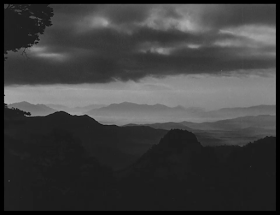 |
| Lya De Putti |
Good programming from the Bioscope tonight with two films
variously entitled Passions of Men and The Woman Always Pays… even
in the early years there were important social questions being raised
especially in Europe, in this case Germany and Denmark.
What a year it’s been for Weimar Cinema and out of the blue
comes a rarity to Kennington extracted by Bioscope stalwart Tony Fletcher from the
BFI archives – not lost but certainly a film that hasn’t been seen for some
time.
Directed by Robert Dinesen, Claire (aka Passions
of Men), stars the incredibly watchable Lya de Putti, the sharpest profile
in Berlin with pencil-thin eyebrows capping sublime arches over eyes flickering
the deepest darkest black… There’s something about Lya and that’s exactly what
this film is about as the plot is essentially a story of her efforts to evade
unwanted male attention; that might be a proto-feminist theme and it’s
certainly not the only film of this period dealing in man’s inhumanity to woman.
 |
| Frida Richard playing another mum in The Path of Grete Lessen (1919) |
Claire is, however, made of stern stuff and refuses the old man’s take it or leave it offer, leading the old buzzard to turf both her and her mother out immediately. He soon relents and chases after them on horseback in terrific shots along a snowy lane lined as far as the eye can see by winter trees. He loses the women and falls off his horse, losing the use of his legs in the process.
 |
| Eduard von Winterstein - a face made for drama |
On her way home she catches the eye of a con artist (Erich Kaiser-Titz) who spies the chance to romance only to have his plans interrupted by the police. He makes a break for it and hides thousands of Marks worth of forged notes in Claire’s bag. Claire gets arrested trying to buy her mother a chicken for supper… but has a lucky break when the police commander believes her story even when she opens her purse to reveal the rotten notes.
By the time she gets home her mother has passed away and,
alone in the world as the Doctor says, accepts his kind offer of work as his
assistant. The two go close and she frets over the visits of a woman who turns out
o be his sister. The film could end with their embrace and the Doctor’s highly prominent
hair fetish – he just can’t stroke it enough – where it not for the surprisingly
early release of the forger.
 |
| Theodor Loos in kindly Doctor mode |
This is where the plot gets a little convoluted when he works
out where Claire lives and – successfully - tries to drive a wedge between her
and the Doctor. Claire’s options begin to narrow but, as she has done all
along, she refuses to sacrifice her independence and morality and, after a
chance encounter, meets her former master’s son (Eberhard Leithoff) who pleads
with her to return and look after him as his mental and physical health declines.
Trouble is, the old fellow is still infatuated with Claire
and he has the gun in his pocket to prove it! Will Claire’s luck finally run
out – I know it doesn’t sound like she’s had much – or is there one more twist
to prevent the woman from paying?
Claire is convoluted fun and John Sweeney enlightened
the narrative with romantic flourishes and dramatic interventions that ensured
we were firmly focused on the extraordinary expressiveness of Lya. Michell Facey introduced and told of the Hungarian actress’
success in Germany – including Variety and her off-screen/in-trailer
relationship with Emil Jannings – before she tried her luck in Hollywood. She couldn’t
sustain success there and died tragically young after surgery to remove a
chicken bone led to infection. By coincidence tonight was the anniversary of
her death in 1931.
 |
| Asta on the tram |
Claire was a rather calming experience after the Bioscope
audience was left shaken and rather stirred by young Asta Nielsen’s
outrageously sexual dancing in Afgrunden (1910). Colin Sell ventured that the
actress might have had control of her costume design because the fabric used
could hardly have been more revealing as she writhed her way around circus
cowboy (Poul Reumert) in a deliberate, distended demonstration of dominance
over her bound “captive”. Syncopated BDSM with a beat and a swing... as it were.
The alternate title for this film is The Woman Always
Pays and even as early as 1910, Asta was questioning why this should be
with a character who is dependent on male patronage and who cannot be free of
the “male passions” that plague Lya too. They were making sophisticated films
for women as well as men and you can only wonder what Die Asta – the first true
European film star along with Max Linder – did for her sisters over this time?
She is famously one of the inventors of screen acting and
her ability to express cinematically – nuanced and naturalistic – is something
to behold. On the big screen she’s stunning, using fine-motor physical control
that, as Angela Dalle Vacche has said, seemed to anticipate the close-up's
subliminal impact.
Colin Sell accompanied with remarkably steady hands despite
the on-screen excitement and combined so well with this remarkably advanced
film which, blemishes aside, stands as one of the pinnacles of early European cinema.
 |
| "And she can dance..." |














































